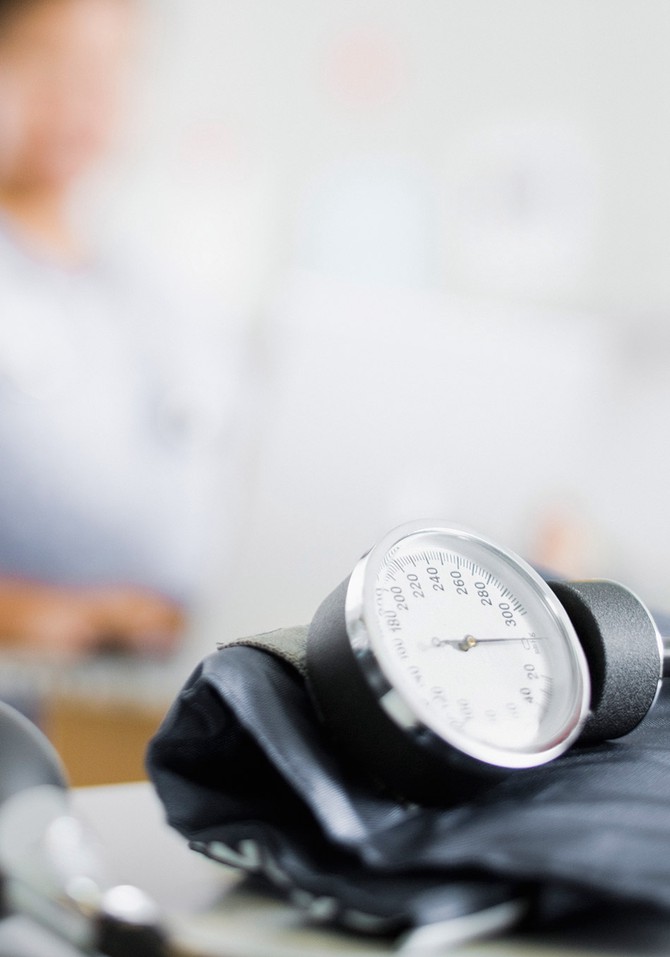The Disease That Kills One Woman a Minute in the US
Each year more than 400,000 American women die from heart disease. The way to protect yourself: Know what to look out for.
By Jihan Thompson

Photo: AVAVA/iStock/Thinkstock
Ask any doctor, and she'll tell you that discussions about heart disease almost always end with a "yeah, but"—like, "Yeah, but I'm not at risk," or "Yeah, but it doesn't run in my family." Yet about every minute, a woman in the United States dies from the condition. To increase awareness, New York–Presbyterian Hospital's Ronald O. Perelman Heart Institute and the Barbra Streisand Women's Heart Center at Cedars-Sinai have teamed up to launch the Women's Heart Alliance and a campaign called Fight the Ladykiller. The goal: to urge women to take heart health seriously. Start by answering these questions.

Photo: Blazej Lyjak/iStock/Thinkstock
What's Your Daily Diet and Exercise Routine?
If you eat more burgers than Brussels sprouts and can't remember the last time you broke a sweat, start small: "Just going from no physical activity to 30 minutes of walking on most days may reduce premature death by more than 30 percent," says cardiologist Holly Andersen, MD, Director of Education and Outreach at the Perelman Heart Institute. "And try to eat a slightly better diet. You can have ice cream—just not every night."

Photo: Zorattifabio/iStock/Thinkstock
Do You Have an Autoimmune Disease?
If you're experiencing recurring symptoms that no one can diagnose (say, chronic fatigue or muscle aches), make sure your doctor has ruled out this type of disorder, which tends to strike women in their 20s to 40s. "The leading hypothesis is that the chronic inflammation associated with these conditions is also a key player in heart disease," says Noel Bairey Merz, MD, director at the Streisand Women's Heart Center.

Photo: Quim Roser/iStock/Thinkstock
Are You a Smoker?
If you light up, let your doctor know. Pack-a-day smokers are more than twice as likely to have a heart attack as people who have never smoked.

Photo: Fuse/Thinkstock
What's Your Blood Pressure?
This is one number everyone must know. Ideally, yours should be around or below 120/80.

Photo: Catherine Yeulet/iStock/Thinkstock
What's Your Ten-Year Risk for Heart Disease?
By plugging key health numbers (including blood pressure and cholesterol) and medical history (like whether you smoke or have diabetes) into a risk calculator, doctors can assess how likely you are to have a heart attack in the next decade. Have your risk checked annually.

Photo: Isakovich Alina/Hemera/Thinkstock
Does Heart Disease Run in Your Family?
No? Great. Yes? Don't panic. "Even if you have a terrible family history, your lifestyle—what you eat, how much you exercise, how you manage stress—is actually a more important factor," says Andersen. "This is the best news, because your heart health is truly in your hands."
From the November 2014 issue of O, The Oprah Magazine

